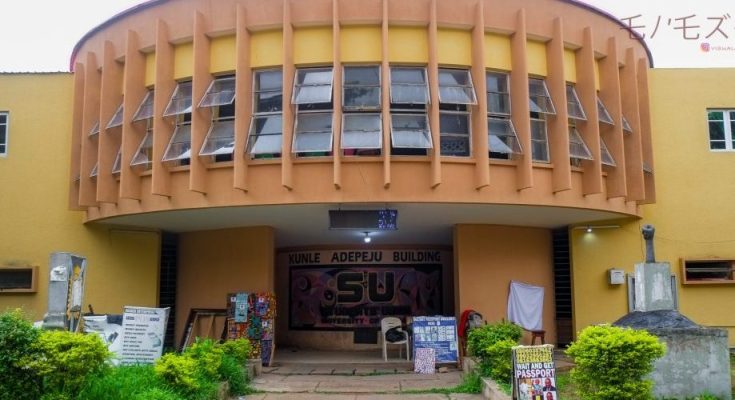By: Ibraheem Fiyinfoluwa
This past week has been one of prominence for the students of the University of Ibadan, as newly elected student leaders have begun lobbying for an increase in the basic due fee. It began with the Council of Hall Chairpersons writing a letter to the University of Ibadan Student Representative Council notifying them of a proposal to increase the basic dues for halls of residence from N3,000 to N5,000. Four days later the Council of Faculty Presidents followed suit to propose the same increment for faculty basic dues. With these two tiers of student associations making the same proposals, it is extremely likely that other student associations within the University of Ibadan will follow suit regarding this issue.
Nevertheless, like in a typical democratic system where checks and balances are functional, this is an increment that cannot be made arbitrarily. This is why letters are being written to the University of Ibadan Student Representative Council to foster agreement between the SRC to make the increment a reality. This situation puts the members of the Student Representative Council in the spotlight because their decision on this issue is one that would, to some extent, finalise the decision to be made on the issue of a basic due increment.
The members of the Student Representative Council were put there by the members of their constituency for one major purpose, which is to represent their interests. The question, however, is will the representative council decision be a representation of the students, especially in an important situation as this? In a biting economy with a steady rise in school fees and an ever-increasing cost of living, the probability of such an increment causing inconveniences for the majority of students is very high. From another perspective, it might seem a bit counterintuitive that while students are fighting against a school fee hike, those basic compulsory dues are increased. These circumstances are what make the decision of increment a controversial and important one.
What Do the Representatives Think?
Due to the importance of the SRC members to the increment decision, UCJUI has spoken with most of the majority leaders in the Student Representative Council to see the possible directions where the SRC could be headed in this situation and examine if the possible decisions of the SRC members would be influenced by the electorates. Speaking to UCJUI, the majority leader of Sultan Bello Hall in the SRC, Hon. Mojoyinoluwa, agrees that the decision to increase basic dues has led to very controversial conversations despite the Council of Hall Chairpersons highlighting “valid” points regarding the economic realities of these student associations.“They have also argued that the rising cost of goods and services has hindered student bodies from effectively executing initiatives, and some people have pointed out that dues of the Union itself have increased significantly, which are all reasonable considerations,” he said. He, however, admits that many students are already struggling with the financial burden of rising living costs and that any decision that affects students directly must be approached with careful deliberation. He says his stance, as with every representative for Sultan Bello Hall, is to directly engage the students themselves and ensure that every action taken is well deliberated amongst the representatives of the constituency. “To this effect, we have decided to conduct a survey to assess their opinions on the proposed increment and the extent to which they find it acceptable, if at all,” he said. “Its results will provide critical insights into how we proceed.”
The Idia Hall majority leader’s words also follow the same pattern as those of Sultan Bello Hall’s majority leader. She claims that deliberations are being made and a sitting might occur concerning the issue.“I am still consulting and aggregating the opinions of my constituency members before I can take a stance on the issue,” she said.
Ayobami Adeoye, the majority leader of Kuti Hall, in discussions with UCJUI, seems to have a favourable disposition towards the increase in basic dues, as he mentions that considering the state of the economy, it is necessary. “We as a constituency see the increment in the basic dues as necessary in sustainably driving the welfare of the residents of Ransom Kuti Hall,” he said. “The increment in the basic dues, although a financial strain, is still very much in the interest of the students welfare.”
Jokomba Quyum, the majority leader of Zik Hall, is still indecisive about the proposal. He says that paying N3000 for basic dues is abysmal, especially since the student union dues have been increased exponentially. “However, we also have to consider the students that will pay these dues and the additional burden it might be on them,” he noted. He also says that he is still in discussions with some of his constituency members, and this will “most especially” influence his decision. In response to the question of if basic dues might compel the university management to further increase fees, the Honourable Member answered in the negative. “The management already more than doubled the school fees, while the basic due did not change. If the basic dues are increased, it is not a justification for the management to increase fees because they have increased fees multiple times in the past.”
Hon. Bello, the majority leader of Queens Hall, said though the proposal has been brought forward, there has not been an official discussion and resolution, so nothing is certain yet. She, however, made a point to note that she would ensure that whatever decision is made in the SRC is in the interest of Queenites. For Mellanby Hall, the majority leader simply mentioned that the SRC will hold a meeting with relevant stakeholders, and after that, the stance of the council would be communicated. When asked about the stance of the Mellanby constituency, he mentioned that it is the stance of the majority that matters. “The stance of the majority of the UISU SRC members matters most and not that of the KMH honourables. So, let us together patiently await the stance of the majority that matters,” he answered.
Majority leaders from Obafemi Awolowo Hall and Independence Hall have not given responses regarding their stance on the basic due increment with the majority leader of the Obafemi Awolowo Hall Constituency stating that everyone is mute on the issue until the school management says something. Despite the variety of responses given by the honourables, there is one common theme that keeps rearing its head, and that is the high possibility of inconvenience of the due increment on students. Representatives were elected to represent the students’ interests and must do well to consider if their decision will reflect the stance of the electorate.




